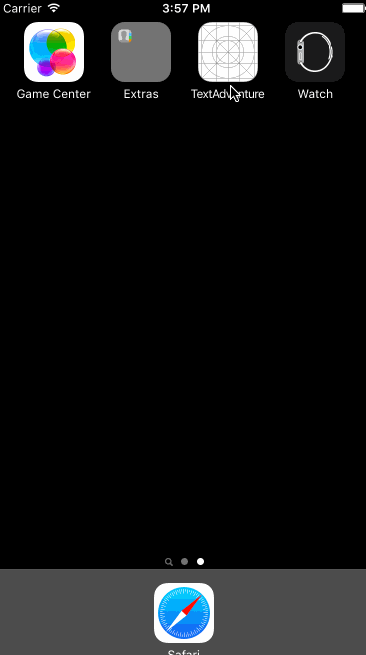Hours Remaining: 67
Last week a friend of mine, Mike Sowden, contacted me with an innocuous message about Lifeline, a new mobile game he had discovered. It was a cross between a text adventure and a choose your own adventure, but with a modern twist, taking advantage of push notifications to create a sense of real-time communication.
You’re texting with Taylor, an astronaut who has crash landed on another planet. He messages you, pausing to ask your advice and you get to direct his course of action as he attempts to survive and arrange rescue. The actions play out in real time so if he has to, say, hike for an hour, you won’t hear from him for an hour.
As someone who’s life is dedicated to storytelling, Mike was excited about it because it was a new way to tell a story and he was interested in exploring its potential. Having dabbled in writing short fiction myself I was also excited by its storytelling potential—the writing is so well done that you really start to care about Taylor (and feel bad when your choices lead to his death)—but I was also excited by it for a different reason: the mechanics of the game are really simple.
So simple, that it’s something you could put together in a very short amount of time
Say, 100 hours.
So (for the third time in this project), I dropped what I was doing and, over the last couple of days, I built a new framework that would allow Mike and I to create some of these kinds of games together. Here is an animated gif of an early version of the framework:

It features all of the major components: decision tress, real-time delays, and local notifications. The source is all plain text files, with a basic syntax that is easy to understand, which makes it easy to collaborate. The framework is entirely self-contained, with each app only needing to provide the text and visual content.
Since then, I’ve expanded it to support multiple characters, up to four different decisions, and variables which can be set and checked throughout the text. This allows you to do some neat things, like if the character goes down one path, then later joins back to the first path then the app can remember that the character went down that second path and say something that references back to it.
It’s a little bad that this is the third thing I’ve started within these hundred hours, but sometimes opportunities are so big and bright and obvious that you just have to drop what you’re doing and take advantage. Mike contacting me bang in the middle of me trying to make a game in 100 hours with something technically simple but entirely compelling, his desire to collaborate on it, and my ability to produce a working framework in two days makes it all feel like this was the right choice.
I do still want to continue with Barista and, as Mike has some other projects to finish up before we can get started together, I may still try to get it finished before the hundred hours is up but I have to admit that I’m incredibly excited about exploring the storytelling potential of this format and may instead create a small story by myself in the remaining 67 hours.